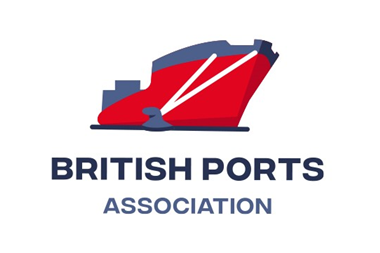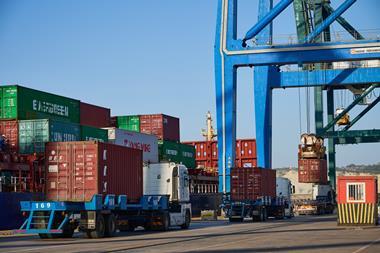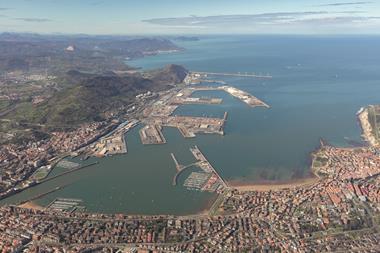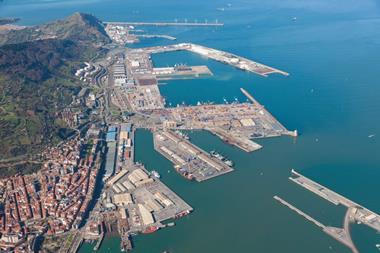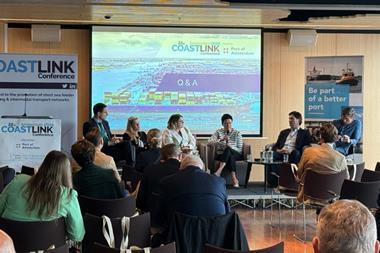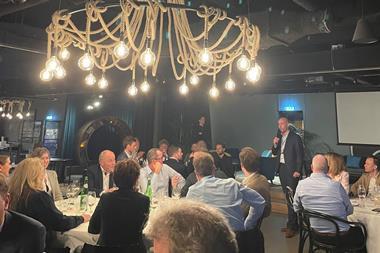“What is normalcy?” was the question posed by Nick Lambert as he opened the Coastlink conference in Liverpool. His answer: “It is a fluid normalcy, it keeps adjusting, it adjusts to events.”
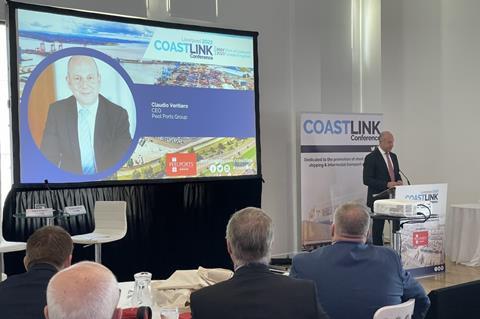
Ukraine is the major issue for the global logistics network right now, he said – “and I particularly despair because it is masking a much, much bigger message around climate change. As we think about zero emissions and reducing carbon activities, we have to bear in mind we have already locked in at least three metres of sea level rise – think about that in context of Coastlink.”
Lambert set the scene for a day of discussions that never moved far from the topics of sustainability and decarbonisation.
“There is an important and urgent need to deliver greater efficiencies and improvements which support our customers while having a positive impact on people, places and planet,” said Claudio Veritiero, CEO of Peel Ports Group.
Reflecting on three years of challenges – including the pandemic, the global supply chain crisis, the Ukraine war and latterly social unrest, against a backdrop of soaring inflation and economic downturn, Veritiero said: “The only constant is the need to change, to strengthen businesses and to drive resilience for an industry that is prepared for whatever next comes our way.
“There are many opportunities for us to learn from each other, to explore new opportunities and identify those actions we can take now that will deliver better outcomes for years to come.”
Addressing the need for a greener and more sustainable supply chain in his keynote presentation, Roger Megann, managing director of WEC Lines UK, said consumers were demanding more transparency – not just where goods are coming from but how they are arriving in the markets.
Meanwhile, the just-in-case model is coming back, as opposed to just in time, he said. “Companies are starting to hold a bit more stock, adding a buffer to their supply chain.”
Megann highlighted the trend towards nearshoring and the production/sourcing of goods closer to the market and said: “Regional ports come in here. Moving by sea is still one of the lowest CO2 emissions [form of transport] that we can possibly achieve.”
Brexit isn’t over but is part of the new normal of the industry – adapting, flexibility, providing innovation – he said. “Brexit had its impact but to the credit of shortsea shipping, freight forwarders, industry, ports, we managed to navigate it pretty well.”
Decarbonisation is very high on the agenda for shipping lines and there are a lot of things to change, said Megann. Referring back to consumer demand, he said: “People want to be involved in businesses lowering their emissions, but still the constraint is that they don’t want to pay for it. There is a balance to be struck between the financial side and what we all desire, decarbonisation.”
Michelle Gardner, deputy director - policy, at Logistics UK said: “Customers are already seeking to see freight operators reduce their emissions. Our members tell us their customers are coming to them and wanting answers on how they are seeking to reduce emissions today and on the long journey to Net Zero. That is really focusing minds at the moment.”
Stephen Carr, group commercial director at Peel Ports, discussed the role of trucks in ports and shortsea/coastal shipping where the distance being covered is so small it doesn’t justify using rail. With the worsening shortage of haulage drivers, “surely the answer is to let the maritime leg do most of the work and let truck do the final miles delivery”, he said.
Day One of Coastlink also included discussions about ports’ commitments and journeys to Net Zero, future fuels, the challenges of electrification and the creation of green corridors.


